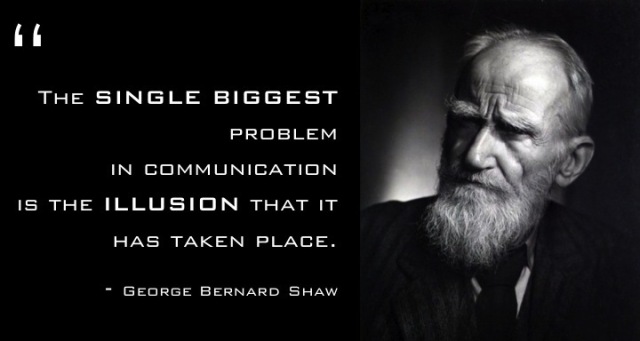The English language is a curious animal; we oftentimes make statements or write instructions, absolutely convinced that we make perfect sense. Until we get a strange look, a blank stare, a response that makes no sense whatsoever, or an outright “Huh??” Or when we go back to it later for one reason or another and realize “Hmmm… I don’t remember what I really meant by that…” Sound familiar? Things don’t always come out the way they were meant. It’s true of everyone, from time to time, albeit some more than others.
And the margin for misinterpretation increases ten-fold when it’s in writing, rather than verbal communication. We’re all over-committed, racing through our day, multi-tasking, and often, our mouth and fingers sometimes get ahead of our analytical skills or better judgment. It’s amazing how fast and easily you can confuse the heck out of people, or worst case, destroy your reputation and credibility these days by keystroke.
In any case, once something comes out of your mouth or you hit the send or post button, it’s out there for your boss, coworkers, customers, and more often than we realize, the entire world to see. You own it forever, you literally can’t take it back, so it’s vitally important it conveys as intended. Once you make the mistake once or twice of being less than clear in your communication– as we’ve all done — that should be enough to make you more diligent in ensuring you are.
Sounds easy, right? But the ability to write clear, unambiguous instructions and communications is truly an art. Whenever you write an email, proposal, or report, it is up to you — not the reader — to make sure your point is understood. There are things you can do to ensure your ideas aren’t misinterpreted:
Put yourself in the reader’s shoes; assess your clarity from the reader’s perspective. Or ask an associate to summarize the main points of your draft from a quick read-through.
Also be sure to keep your language simple, shooting for short, concise sentences. Twenty words or less in a sentence is ideal; always be as brief as possible and never use as long word when a short one will do.
Simplicity doesn’t mean simplicity of thought. Start by asking yourself what you want the person to do as a result of your communication. Just asking yourself that question can make your communication much clearer. Clarity is the most important characteristic of good business writing. Happy writing!


